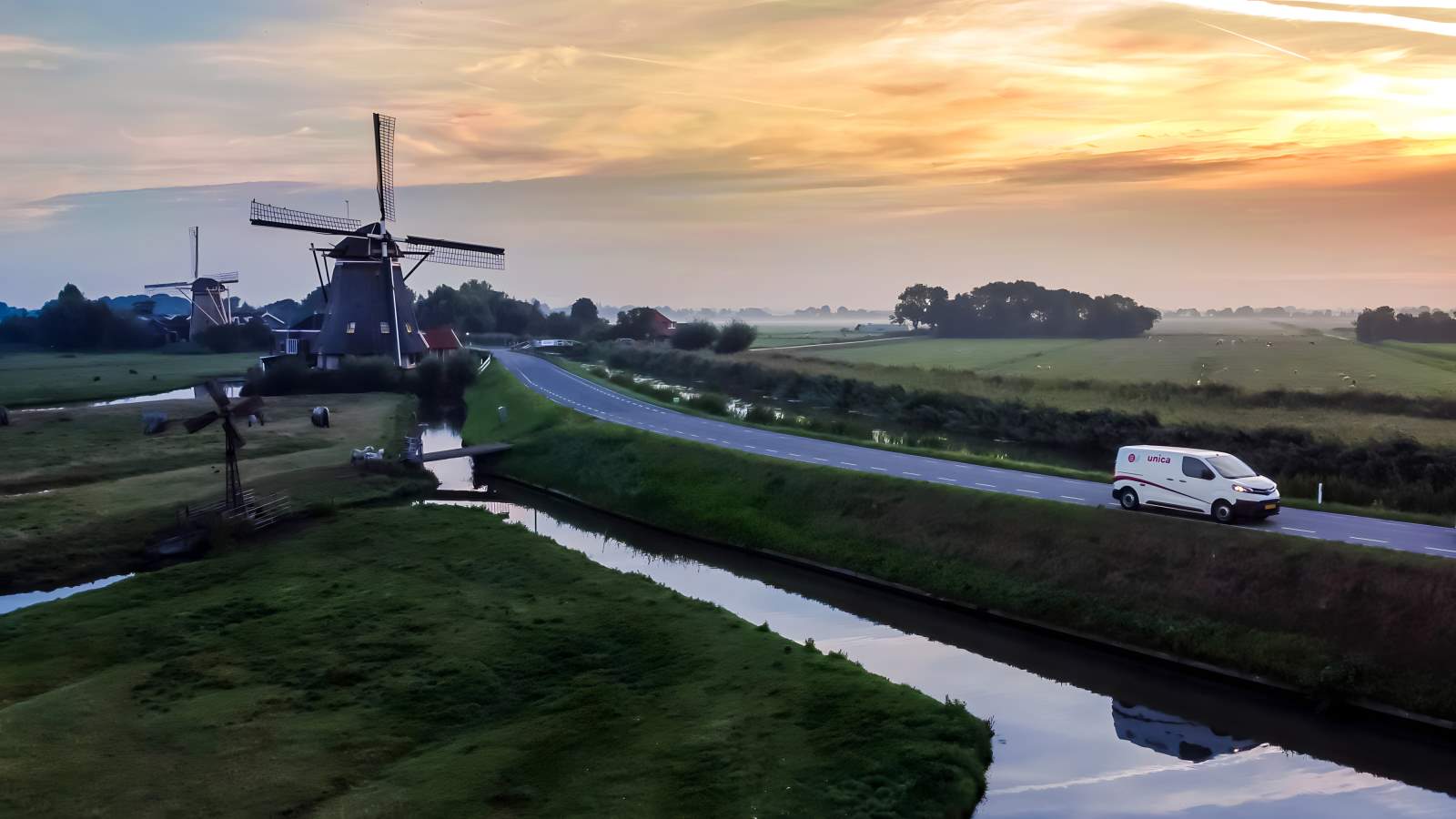Internal operations
For its own internal operations, Unica has been awarded ISO 14001 certification. This certificate reflects the fact that all work is carried out according to an environmental management system and environment policy, which is structurally embedded in all work processes and systems. In line with the certificate, Unica sets itself environmental targets that are reported on each year. In the spring of 2022, Unica was able to renew its EcoVadis certificate for sustainable business practice. Just like with the original certificate in 2020, the new certificate was accompanied by a silver medal in recognition of the company’s performance in the field of sustainability. This makes Unica one of the 25% best similar companies that EcoVadis has assessed.
Another priority at Unica is the concentrated focus on CO2 reduction in the company’s own activities. To streamline the management approach to CO2 within the network of companies, Unica relies on the CO2 Performance Ladder. Unica started the certification process in 2022 and set itself the target of reaching step 3 of the certificate during the first six months of 2023.
To gain an insight into its CO2 emissions, all energy consumption measurements from all office locations have been digitalised in the Building Insight platform. Based on these data, as well as conducting regular sustainability measurements, data-driven efficiency improvements can be implemented.

Many of the locations from which Unica operates generate part of their own energy requirements, for example with solar panels and CHP installations. The company’s head office in Hoevelaken holds a BREAAM Excellent certificate and the offices in Bodegraven were fully sustainably renovated in 2022. Following this large-scale renovation project, the 50 year-old premises were reopened in April with an A++ label, representing a huge advance in building sustainability. Both structurally and in terms of its system components, the building has been fully renewed and equipped with integrated heat pumps and control technology, LED lighting with daylight regulation and motion detection, as well as 200 solar panels. The interior of the Bodegraven office has also been modernised with circular furniture. Finally, the interior underwent a total metamorphosis, creating an inviting workplace for the more than 150 users.
Besides accommodation, another major contributor to Unica’s CO2 footprint is mobility. A more up-to-date mobility policy was introduced in 2021, aimed at electrification of the vehicle fleet and more possibilities for flexible transport. The new mobility policy is an important step towards the target of ordering no more petrol-driven cars by 2025, thereby making Unica’s vehicle fleet completely emission-free by 2030. Experiments involving sustainable service logistics are being conducted at various locations, with a view to minimising emissions generated by Unica field staff in performing their service tasks.
With regard to waste, Unica is aiming to structurally reduce waste production by ensuring that all released materials are reused at the highest possible level. Unica aims to achieve this goal by separating waste at office locations and work locations, and by joining forces with a recognised waste processor. Thanks to the more effective deployment of the resources available, despite the growth of the organisation, the volume of waste disposed of by Unica has been reduced by more than 12% over the past two years.
Unica will continue to work hard to introduce further measures to improve waste processing at all project locations and to include all new Unica offices. In 2022, Unica signed up to the Sector Packaging Plan introduced by Techniek Nederland. The ambition is for the sector to work towards a circular economy in which minimal use is made of primary resources for packaging, and packaging waste is cut as far as possible.